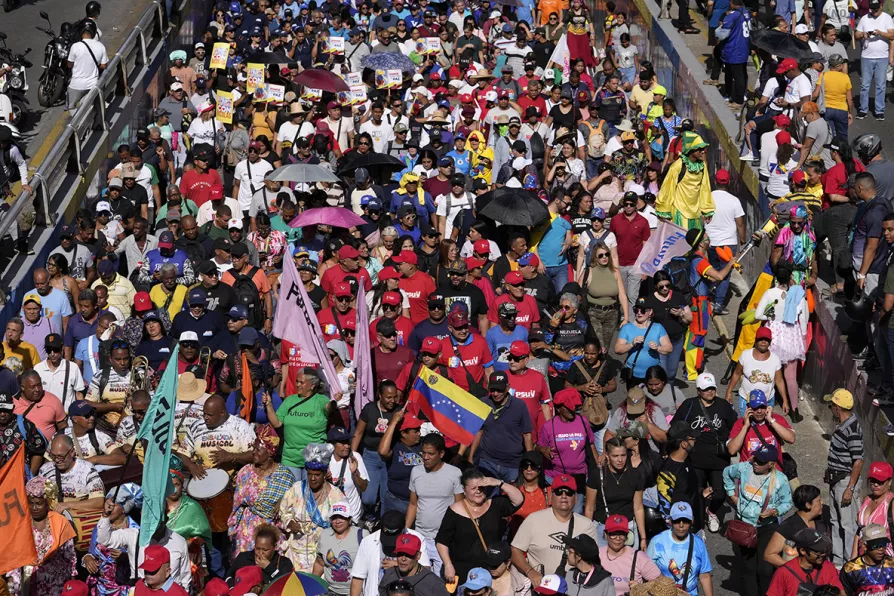As women dominate public services yet face pay gaps, unsafe workloads and rising misogyny, this International Women’s Day and TUC Women’s Conference must be a rallying point, says ANDREA EGAN

 Supporters gather for a pro-government rally in Caracas, Venezuela, August 3, 2024
Supporters gather for a pro-government rally in Caracas, Venezuela, August 3, 2024
US CORPORATE media’s coverage of Venezuela’s July 28 presidential election is akin to an investigation of a homicide that is focused not with identifying the murderer but with an unpaid parking ticket of the victim.
Likewise, the media has shifted the narrative into the minutia of electoral procedures, ignoring the much larger issue of US interference in the internal affairs of another sovereign country.
Nowhere in the corporate media is there even an inkling that US-imposed regime-change activities in Venezuela or elsewhere might violate some basic principles.
The US is not interested in democracy
The US is a country where the likes of George Clooney and Melinda Gates have the prerogative, because they are rich, to demand that a sitting president abandon his reelection bid. In this “land of the free,” corporations are considered persons, political bribery is an exercise in free speech, and no candidate for public office is competitive unless they accept bribes from corporate interests. Yet Washington considers itself to be the ultimate arbiter of what constitutes democracy in other countries.
The truth is that Washington is not interested in democracy in Venezuela, but rather is keenly concerned with Caracas’s geopolitical role as an exemplar of independent sovereignty from the empire. For that reason, Obama and every subsequent US president has declared Venezuela to be “an unusual and extraordinary threat” to US national security.
Of course, the notion that Venezuela poses a national security threat to the US is preposterous. Former US president Trump correctly identified Washington’s actual motives when he openly boasted: “When I left, Venezuela was ready to collapse. We would have taken it over; we would have gotten all that oil.”

International solidarity can ensure that Trump and his machine cannot prevail without a level of political and economic cost that he will not want to pay, argues CLAUDIA WEBBE

The global left must be unwavering in it is support for Venezuela as Washington increases its aggression, and clear-eyed about the West’s cynical motives for targeting it, says CLAUDIA WEBBE

HANK KENNEDY contends that US military attacks in the Caribbean amount to modern piracy driven by Venezuela’s oil wealth











